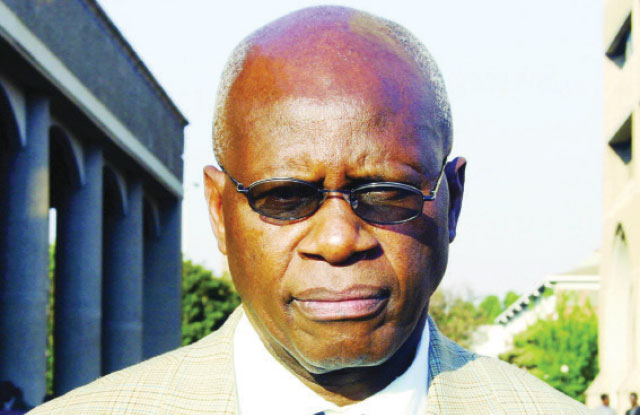Cyber Security Ministry meant to enhance national security

IN his Cabinet reshuffle on Monday, President Mugabe reassigned former Finance and Economic Development Minister Patrick Chinamasa to a new portfolio — the Ministry of Cyber Security, Threat Detection and Mitigation — sparking widespread debate among the country’s netizens (internet users) most of whom were fascinated by the new ministry. There was frenzied debate on social media, with focus trained on the possible mandate of the new ministry but the general consensus was that Government was trying to muzzle citizens’ freedom to use the internet as they see fit.
Clearly, there was a need for clarity on the role of the new ministry and the Government obliged by explaining the mandate of Cde Chinamasa’s new assignment. Speaking to journalists at State House on Tuesday where some of the new ministers were being sworn in by President Mugabe, presidential Press secretary Cde George Charamba said the Ministry of Cyber Security, Threat Detection and Mitigation was aimed at protecting the nation from cyber threats posed by the abuse of social media.
He explained that the new ministry was a high-security brief given the gravity of the threat posed by social media. Mr Charamba said the appointment of Cde Chinamasa was informed by his rich history as a lawyer since there was a need to develop laws to deal with cyber crime and set up new structures in that area. “I want to give these words from the President. He said Ministry iyoyo, one, it’s new, ndiyo riva redu kubata makonzo aya anoita mischief using cyber space. He (President Mugabe) is very clear because this is a new ministry; it needs law development, which is precisely why he thought of no other than a person with legal competence to handle that area. Then, of course, he also wants the new Minister to be able to draw from the experience from other countries.
“He specifically made reference to Russia, he made reference to China, and he made reference to the Koreans as countries who have done exceedingly well in terms of ensuring some kind of order and lawfulness in that area. He then spoke about the structures to make sure that the Ministry then takes a workable form. And of course to use his (President Mugabe) words again, it’s called a protective Ministry, which means to protect the interests of the State,” he said.
The President’s reference to some countries which have had a measure of success in ensuring order and lawfulness in the age of the internet is instructive.
Take China for instance. The country has a population of 1,4 billion people and its mobile users exceeded 1.3 billion by the end of 2015, meaning that nearly everyone in that country owns a mobile phone. Imagine the chaos that would ensue were that country to loosen its internet laws and allow a free for all.
The lawlessness and chaos would be unparalleled. China has its own search engines and social media applications that rival established ones like Facebook, Instagram, Twitter, WhatsApp and search engines such as Google. Whereas these Western apps are largely unregulated by governments in which they operate, in China, the government plays a major role in ensuring that social media platforms such as We Chat and Weibo operate within the confines of the law and do not promote moral decadence and spread falsehoods.
This is important because the Chinese government’s main priority is maintaining order, peace and security in a country with the largest population in the world. Abuse of social media is minimal in China and this has allowed that country’s citizens to channel energy towards progressive ventures using the power of the internet instead of engaging in destructive behaviour.
Governments around the world, even those in the West, are increasingly discovering, to their detriment, that unregulated use of the internet could be counter-productive. Terrorist organisations such as ISIS are using the internet to recruit and indoctrinate young people while hackers are stealing highly classified documents and selling them to the highest bidder to the detriment of national security.
Criminals are also cashing in and hacking the accounts of private individuals, siphoning their savings. In Zimbabwe, the nation was almost plunged into chaos a few weeks ago when mischief makers used the power of social media to spread fake news, almost precipitating a collapse of the economy. To this day, Government is still grappling to undo the damage which saw price hikes and the collapse in value of bond notes against the United States dollar.
Indeed it would be the height of irresponsibility were the Government to sit idle while the country burns as a result of social media abuse. This is why we agree strongly with the Government stance on this subject and warmly welcome the creation of the new ministry which we hope will deal with mischief makers and alarmists in our midst who use the cloak of anonymity which social media offers to cause panic, excitement and lawlessness in the country.
We hope the new Ministry will craft policies and laws that will bring normalcy and order to the sector by borrowing heavily from countries such as China that have been able to tame the jungle that is the World Wide Web.








Comments